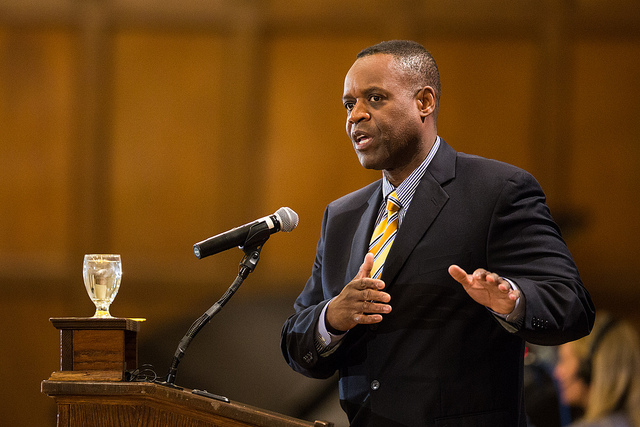Detroit, labor unions and the retirees they represent have been locked in federal mediation for months in the wake of the city’s bankruptcy proceedings. The negotiations centered on two competing concepts: pulling the city out of bankruptcy without pushing its pensioners into poverty.
The two sides had long been unable to find common ground, but the urgency of the issue meant something had to give. This weekend, something finally did.
The two sides emerged from mediation last Friday to announce they’d reached a deal in principle that supports Detroit’s restructuring plan but doesn’t gut retirees’ benefits.
USA Today gets into the deal’s details:
Friday’s deal sweetens the stakes for retirees on three major fronts:
• Pension cuts. It would cap total cuts to monthly pension benefits at 20% — critical because some pensioners in the city’s General Retirement System faced huge reductions beyond the base 4.5% cuts to all civilian retiree checks. That’s because Detroit wants to take back what it said were excessive interest payments made to retirees who invested in an annuity savings fund in 2003-2013. The total amount of the so-called annuity “claw back” would be capped at 15.5%, lower than the initial 20% the city had negotiated with the general pension fund.
• Retiree health care. The city agreed to set up a $450 million pot of money for retiree health care, up from less than $300 million previously offered. That additional money would guarantee current retirees monthly stipends for life, instead of eight years, as Detroit had proposed. The stipends vary by worker depending on their income level and whether they were disabled on duty, but the minimum is $125 a month.
• Possible future restoration of money. Detroit and the committee also agreed to firmer targets and goals that would allow retirees’ pension cuts to be reduced if the city’s pension fund investments perform well and other terms are met, Alberts said.
The tentative deal means the retiree committee will recommend that Detroit’s 32,000 pension beneficiaries approve the agreement. Individual retirees still have to vote on the city’s plan before any pension cuts are finalized.
Detroit also reached a separate deal today with 14 of its unions and 3,500 retirees on a five-year collective bargaining agreement.
From the Detroit Free-Press:
The deal includes restoration of some pay for city workers who have faced wage freezes and a 10% pay cut in recent years, although details will vary by union, according to a person familiar with the proposal who wasn’t authorized to discuss it and spoke on condition of anonymity.
Other factors in the deal include work-rules concessions from the unions, the person said.
Detroit’s public safety unions, which have formed a coalition in negotiations with the city, are not part of the deal announced today, said Mark Diaz, president of the Detroit Police Officers Association. The public safety labor coalition also includes the Detroit Fire Fighters Association, the Detroit Police Command Officers Association and the Detroit Police Lieutenants and Sergeants Association.
Diaz said the public safety unions are still open to negotiating with the city, but proposed contract terms so far have been unacceptable. The city has been offering police officers wages starting at $14 an hour, Diaz said.
Union members and federal bankruptcy court will have to ratify the agreement before it goes into effect.
Photo Credit: University of Michigan via Flickr Creative Commons License

